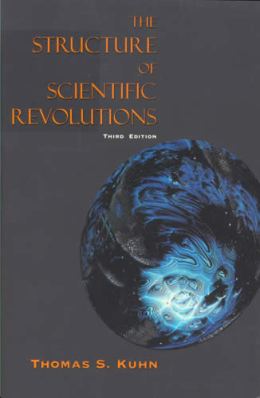
Kuhn didn’t invent the phrase paradigm shift, but he popularized it and gave it the meaning it has today. He also triggered one when he published The Structure of Scientific Revolutions in 1962. Kuhn dismissed once and for all the illusion that science consists of the gradual, objective accumulation of knowledge. Instead he mapped out a more violent process by which, after a period of placid “normal science,” radical thinkers like Freud or Einstein can shatter the accepted modes of thinking, which will then eventually be replaced by a new paradigm (which is fated to one day be shattered in its turn). The dominant paradigm determines what questions can be asked and how data is interpreted: new data that doesn’t fit inside it tends to be thrown out as anomalous rather than assimilated and explained, until the anomalies pile up and become too numerous to ignore, and revolution occurs. After Kuhn, we can no longer ignore the fact that however powerful science is, it’s as flawed as the scientists who do it.
